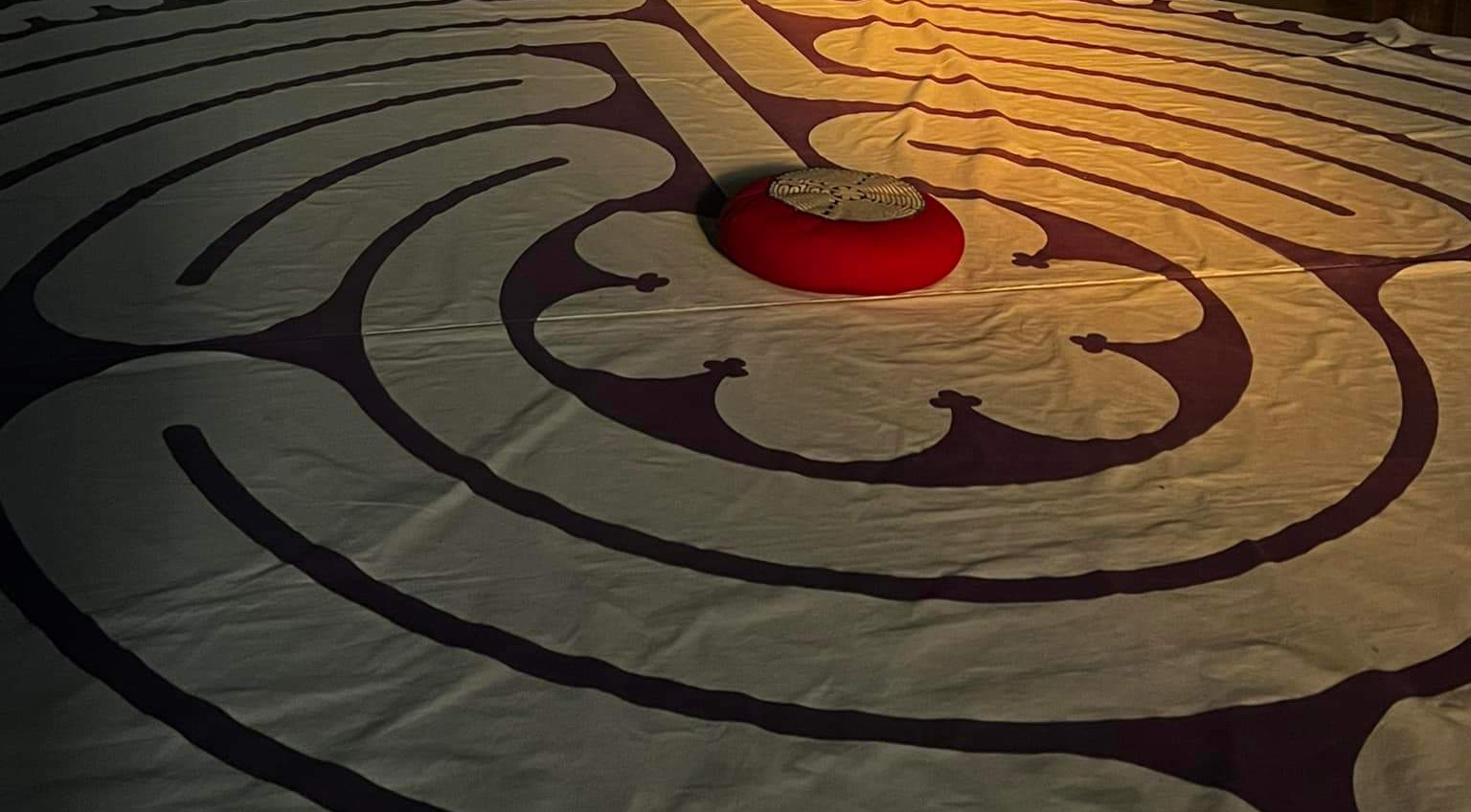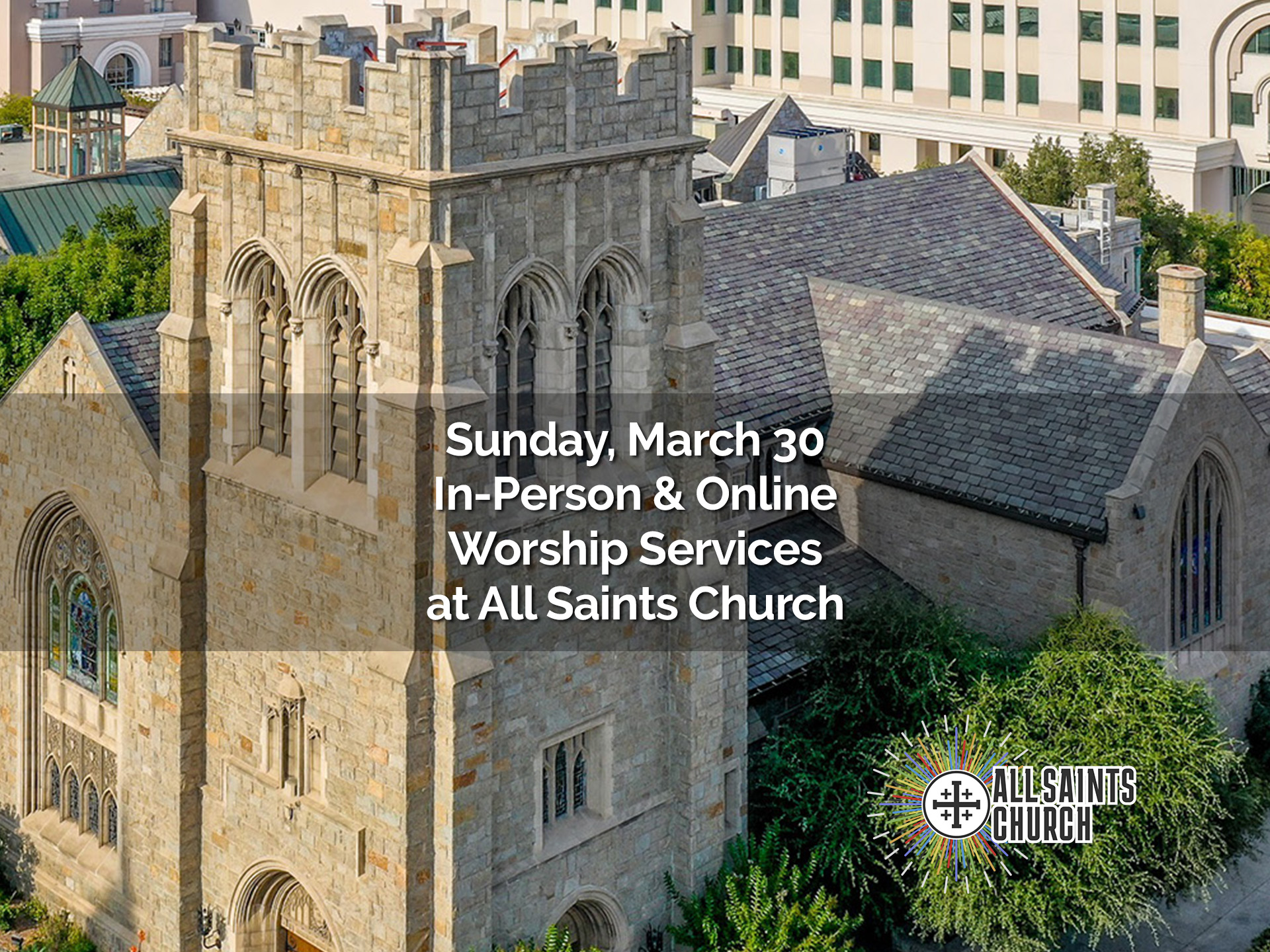On Sunday, June 11th, marchers will take to the streets around the nation for demonstrations in support of LGBTQ Equality. Here in Los Angeles our annual Pride Parade is being replaced by #Resist March – described by organizers as “a peaceful declaration of resistance against the gathering forces in government that intend to take away our hard-won basic human rights. We resist forces that would divide us. We resist those who would take our liberty. We resist homophobia, xenophobia, sexism and racism.”
Members of All Saints Church — let by All Saints staffers Jim Loduha and Kelly Phelan — will join the Diocese of Los Angeles marching contingent – and here in Pasadena we will offer special intentions and prayers that Sunday for their work and witness. Susan Russell will preach at 7:30, 9:00 & 11:15 a.m. as we pray that the arc of history we are told bends towards justice continues to bend toward LGBTQ equality and we will recommit ourselves to resist efforts to bend it back by reversing the gains made toward that goal.
Our resistance is grounded not only in our civic commitment to the aspirational pledge of “liberty and justice for all” but in our sacred commitment to “respect the dignity of every human being.” And so as we prepare to support the resistance movement on June 11th with our prayers and with our presence, we also want to remember some of the benchmark moments along that arc of history … moments where the Episcopal Church in general and All Saints Church in particular have been agents of change working for equal protection and full inclusion of LGBTQ people in our nation and in our church:
1976: The General Convention of the Episcopal Church adopted a resolution declaring “homosexual persons are children of God who have a full and equal claim with all other persons upon the love, acceptance and pastoral concern and care of the Church.”
1992: After a year of study by the “God, Sex & Justice” task force, George Regas presided at the first blessing of the union of a same-sex couple at All Saints Church (Mark Benson and Phil Straw)
1994: Sexual orientation was added to the non-discrimination list in the canons for ordination in the Episcopal Church.
1997: All Saints launched Beyond Inclusion ministry, committed to making the theological case for full inclusion of lesbians and gays in the life, ministry, and sacraments of the Episcopal Church.
2002:All Saints partnered with other LGBT organizations and justice leaders in the Episcopal Church to form Claiming the Blessing a national collaborative focused on securing approval for liturgical rites for the blessing of couples in same-sex relationships.
2003: Gene Robinson was elected as the Ninth Bishop of New Hampshire – the first openly gay bishop in the Anglican Communion.
2006: Claiming the Blessing produced Voices of Witness – a documentary telling the stories of LGBT Episcopalians and featuring the stories of many All Saints members.
2008: After the May 2008 California Supreme Court decision for marriage equality, All Saints married 46 same-sex couples between May and November – and was in the forefront of the “No on Prop 8” struggle
2009: In response to Prop 8 suspending marriage equality in California, the ASC Vestry adopted a resolution stating that All Saints is committed to making the sacrament of marriage equally available to all couples, and that All Saints clergy would not sign civil marriage certificates for any couples, until the right to civil marriage was available to all couples. And in July, the 76th General Convention called for the creation of liturgical rites for the blessing of the unions of same-sex couples.
2012: A second documentary – Voices of Witness: Out of the Box – was produced at All Saints telling the stories of transgender Episcopalians. And in Indianapolis, the 77th General Convention authorized the liturgies for blessings, called for civil marriage equality and added gender identity to the non-discrimination canons.
2015: Meeting in Salt Lake City, the General Convention amended the church’s marriage canons to make the sacrament of marriage equally available to same and opposite sex couples and approved gender inclusive marriage liturgies for use in the Episcopal Church as we celebrated the Supreme Court decision bringing marriage equality a nationwide reality.
2017: We take to the streets to stand for equality and resist efforts to roll back gains for the LGBTQ community and work for the day when liberty and justice for all is not just a pledge we make but a reality we live in our nation.



